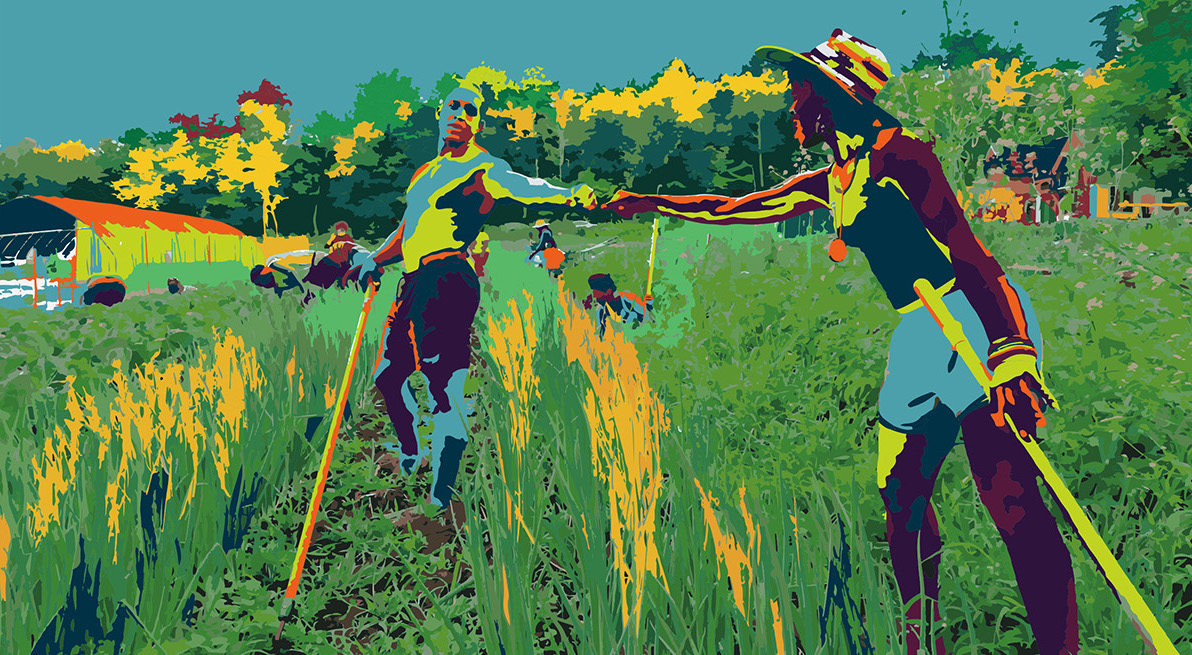“Stewarding our own land, growing our own food, educating our own youth, participating in our own healthcare and justice systems,” Penniman writes, “this is the source of real power and dignity.”
or order the book from Barnes&Noble or Amazon
Some of our most cherished sustainable farming practices have roots in African wisdom. Yet, discrimination and violence against African-American farmers has led to their decline from 14 percent of all growers in 1920 to less than 2 percent today, with a corresponding loss of over 14 million acres of land. Further, Black communities suffer disproportionately from illnesses related to lack of access to fresh food and healthy natural ecosystems. Soul Fire Farm, cofounded by author, activist, and farmer Leah Penniman, is committed to ending racism and injustice in our food system. Through innovative programs such as the Black-Latinx Farmers Immersion, a sliding-scale farmshare CSA, and Youth Food Justice leadership training, Penniman is part of a global network of farmers working to increase farmland stewardship by people of color, restore Afro-indigenous farming practices, and end food apartheid.
And now, with Farming While Black, Penniman extends that work by offering the first comprehensive manual for African-heritage people ready to reclaim their rightful place of dignified agency in the food system. This one-of-a-kind guide provides readers with a concise “how-to” for all aspects of small-scale farming
“Farming While Black teaches us the fundamental acts of growing food and growing community.”
- Karen Washington, from the foreword
“For centuries Black people have utilized farming for nourishment and sustenance. Although Black farming and the cultivation of Black land is rapidly endangered, Leah Penniman and her family, through their work with Soul Fire Farm, are holding down the tradition that has anchored Black communities for so long. Farming While Black helps us remember why land cultivation is such a significant part of the fight for freedom for Black people. Reading this book provides practical tools along with a beautiful visionary template for practicing land development that is rooted in healing and transformation. Thank you, Leah, for your work and for your vision.”
“Leah is a griot! I could feel my own ancestors talk to me as I read each chapter. The message is a clear call to arms for what it takes to be of African descent and to be liberated in these times: we must connect with the Earth, we must put our hands in the soil. I thank the ancestors for guiding her heart, protecting her as child, and whispering to her as she penned Farming While Black! A’se.”
“Leah Penniman’s powerful, informative, and lyrical work reflects her profound love for Black people and her unwavering commitment toward achieving Black land justice—a Black land classic!”
“Farming While Black is a beautiful and timely work that manages to live at once as a stunning memoir of the extraordinary life of Leah Penniman and her Soul Fire Farm; a methodical and innovative instruction manual for a sustainable farm practice; and a clear-eyed manifesto that uses the rich history of the Black farming legacy as the guiding ethos for an effective modern day resistance movement.”





